

ARDUPdates
ASSOCIATION OF 1890 RESEARCH DIRECTORS

KSU & DSU help Nigeria use intercropping to increase yield
Food insecurity remains a challenge in Sub-Saharan Africa and a major contributor to protein-energy malnutrition due to the gradual stagnation of agricultural productivity in recent years, due to a lack of resources. To address this issue, scientists from Kentucky State University (KSU) and Delaware State University (DSU), with funding from the Center of Excellence for Global Food Security and Defense, conducted a pilot project in collaboration with scientists at the University of Calabar in Nigeria. The project’s goals were to enhance crop production through mixed crop/intercropping farming, organize workshops to increase nutrition education, promote post-harvest preservation technology among farmers, and enhance research on food processing to improve value addition.
The pilot project’s objectives included advancing
Message
from the Chair |


Dear Friends and Colleagues,
The 1890 Research Directors will remain actively engaged this summer by participating in the SouthGrant Conference and the BAA Summer Leadership Conference while continuing to advocate for our FY 2026 appropriations and plan for the 135th Anniversary of the Second Morrill Act of


ARD, a regional research association, remains firmly dedicated to advancing our "innovative agenda" one focused on delivering practical, research-driven solutions that improve quality of life throughout the 1890 region and beyond. Our continued investment of intellectual and financial resources will be closely aligned with Executive Orders and USDA strategic goals, ensuring a meaningful impact for the communities we serve.
It is essential that ARD consistently centers our stakeholder’s voices and needs as we design, co-design and
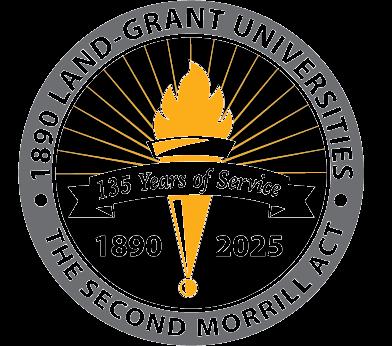

sustainable agriculture practices, adding value to perishable crops, enhancing food availability throughout the seasons and improving nutrition knowledge through nutrition education and enhanced post-harvest management strategies to strengthen food security in the region.
DSU and KSU scientists organized two workshops and training sessions for University of Calabar scientists, students, Cooperative Extension personnel and

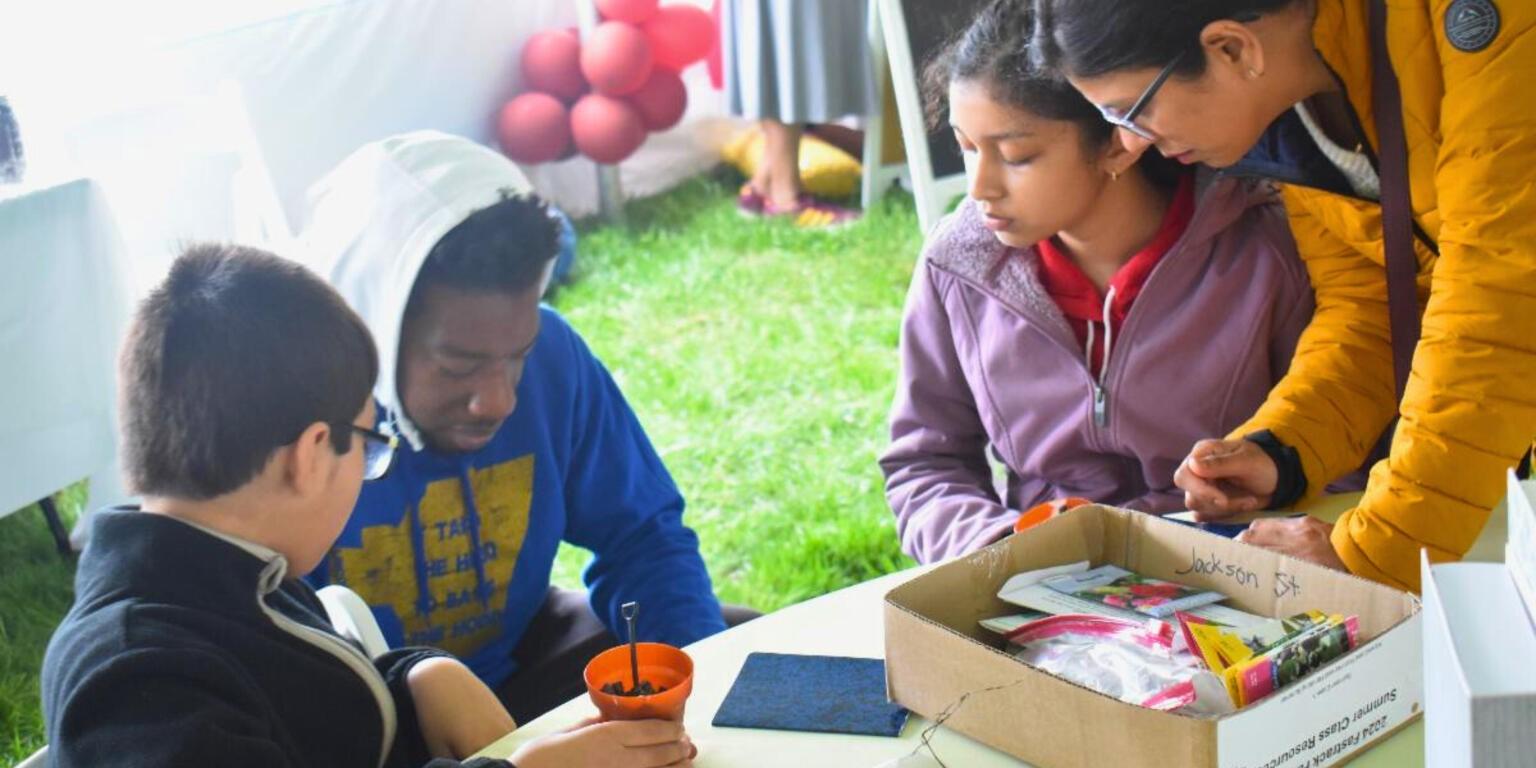


implement impactful programs and initiatives. I am genuinely optimistic about the future of our nation's food and agricultural systems and deeply confident in ARD's critical role in driving the transformational research and education that will shape a more sustainable future.
At the upcoming Southern Mini Land-Grant Conference (June 9–12), hosted jointly by the University of Arkansas at Fayetteville and the University of Arkansas at Pine Bluff, ARD will participate in collaborative sessions focused on communications and marketing, faculty hiring and retention and artificial intelligence in agriculture and the environment. These sessions will continue strengthening our ongoing partnership with agInnovation South through coordinated activities and shared initiatives.
A key feature of the joint meeting with agInnovation South will be the presentation of the "Collaborations that Work" study, jointly commissioned by both associations with financial support from the Southern Rural Development Center (SRDC). Dr. John Green, SRDC’s director, will present the study's findings, which center around four main objectives:
DR. WESLEY WHITTAKER
DR. W. WHITTAKER
The three new food products developed as part of the collaborative.


1890s HAVING AN IMPACT
Congress approved the Evans-Allen Act of 1977 to provide capacity funding for food and agricultural research at the 1890 land-grant universities and Tuskegee University (the 1890 Institutions) similar to that provided to the 1862 universities under the Hatch Act of 1887. Research conducted under the Evans-Allen Program has led to hundreds of scientific breakthroughs of benefit to both the unique stakeholders of the 1890 institutions and the nation as a whole. The Evans-Allen Program has been extremely important in allowing the 1890 institutions to attract topnotch scientists to their campuses, conduct high-quality and innovative research and become more fully integrated within the land-grant system. This edition, includes impacts from the 1890 research program submitted by scientists at South Carolina State University.
SCSU identifies a key to high-quality cotton production
The precise control of defoliant spray duty cycle can significantly improve cotton fiber consistency and quality, according to results from a recent study led by Dr. Joe Maja, director of the Center of Applied Artificial Intelligence for Sustainable Agriculture (CAAI4SA) at SC State University Public Service & Agriculture.
The research evaluated three different defoliant duty cycles (20%, 40% and 60%) and a control treatment across two field sites, using high-volume instrument (HVI) measure-
yields the greatest consistency across both sites, producing the most uniform and stable fiber characteristics, reducing variability in length, strength and uniformity. In contrast, the 20% and 60% cycles, along with the untreated control group, introduced more variability in fiber characteristics. The control treatment exhibited the most significant inconsistencies, confirming the importance of precision in defoliant application.
“Optimizing defoliant application gives growers a data-driven approach to achieve yield consistency, which helps improve the profitability for farmers,” said Maja, senior scientist. “Our research findings not only support better harvests for our farmers but also strengthen the competitiveness of cotton nationally.” Defoliation is crucial in removing excess foliage before mechanical harvesting, improving machine access to open bolls and minimizing trash in the harvest. Chemical defoliants accelerate leaf drop and boll maturation, shortening the interval between defoliation and harvest, reducing lint staining and preventing plant lodging.




searchers applied Principal Component Analysis (PCA) to distill complex fiber traits into clear performance metrics. The research findings indicated that a 40% duty cycle
“Effective defoliation reduces impurity levels, streamlines harvest operations and safeguards fiber integrity," Maja added. Research team members include Joe Mari Maja (SC State PSA); Jyoti Neupane (Department of Crop and Soil Sciences, Miller Plant Sciences); Van Patiluna (SC State 1890 Research & Extension); Gilbert Miller (Edisto Research and Education Center, Clemson University); Aashish Karki (Department of Plant and Environmental Sciences, Clemson); Michael W. Marshall (Department of Plant and Environmental Sciences, Clemson); Matthew Cutulle (Department of Plant and Environmental Sciences, Clemson); Jun Luo (School of Mathematical and Statistical Sciences, Clemson) and Edward Barnes (Cotton Incorporated, Cary, N.C.).
The full study is available here.
For more information on Maja’s research or the CAAI4SA, contact Dr. Joe Mari Maja at 803-536-8440 or jmaja@scsu.edu.
A remotely controlled defoliant sprayer conducting a spray cycle test at the SC State 1890 Research & Demonstration Farm in Olar, South Carolina.
Image by Freepik
Empowering small farmers with innovative weed identification app
Weeds are a significant barrier to productivity for small and local farmers, often leading to lost yield and decreased crop quality. While manual weeding provides precise weed management, it is labor-intensive and has high labor costs, making weed management challenging for small and local farmers in South Carolina. Additionally, limited access to effective weed identification tools leads to ineffective weed control, affecting crop production.
To address the ongoing challenges facing small farmers, Dr. Biswajit Biswal, SC State 1890 faculty researcher, is equipping farmers with the technology to identify weeds through a smart, scalable solution.

By leveraging the power of artificial intelligence (AI) and data analytics (DA), Biswal uses mobile apps and digital technology to significantly enhance crop yield and

can reduce labor costs and expenses by implementing effective weed control strategies that specifically target weeds. This can help reduce the use of chemicals, labor, and equipment.
Biswal said the app is easy for farmers to use in their fields, and the software is also cost-effective.
“The app is designed with accessibility for our farmers,” said Biswal. “Farmers can use common mobile devices or laptops to access the system, ensuring affordability and ease of use. By automating weed detection and providing timely management insights, the app reduces the need for manual labor and





his AI technology.
Accurate weed identification enables farmers to manage weed challenges effectively. This reduces competition for water and nutrients between weeds and crops, leading to healthier crops and greater productivity.
By using the smart app to identify weeds, farmers
to collaborate with 10 farm partners in the fourth and fifth years to introduce
The mobile app will be free for farm participants.
Biswal’s current project is one of several AI research initiatives underway at SC State University’s Public Service & Agriculture’s Center for Applied Intelligence for Sustainable Agriculture (CAI4SA).
For more information on Biswal’s weed identification app, contact Dr. Biswajit Biswal, SC State University associate professor of computer science and 1890 faculty researcher, at 803-536-8440 or bbiswaji@scsu.edu
SC State University 1890 Research & Extension student researchers assist Dr. Biswajit Biswal with using drones for weed identification.
Florida A&M hosts student success symposium
The College of Agriculture and Food Sciences at Florida A&M University recently hosted the Student Success and Workforce Development Symposium impactful event filled with keynote sessions, breakout discussions, hands-on workshops, cultural excursions powerful conversations with changemakers from various agencies and the broader 1890 system.
The symposium also offered valuable insights and training in career development, professional growth, mentorship and essential life skills. With an emphasis on skill-building in areas such as navigating the job market, positioning for workplace success, leadership principles, effective communication and networking, the symposium went beyond a traditional conference. It was a celebration of the 1890s’ united commitment to advancing student success, workforce readiness and career development.
This symposium, sponsored by the 1890 Center of Excellence for Student Success and Workforce Development (SSWD), was held in conjunction with the first of four conferences supported by the NIFA grant, titled “Career Awareness and Talent Pipeline Development for Participants in the Scholarships for Students at 1890 Institutions Program.”
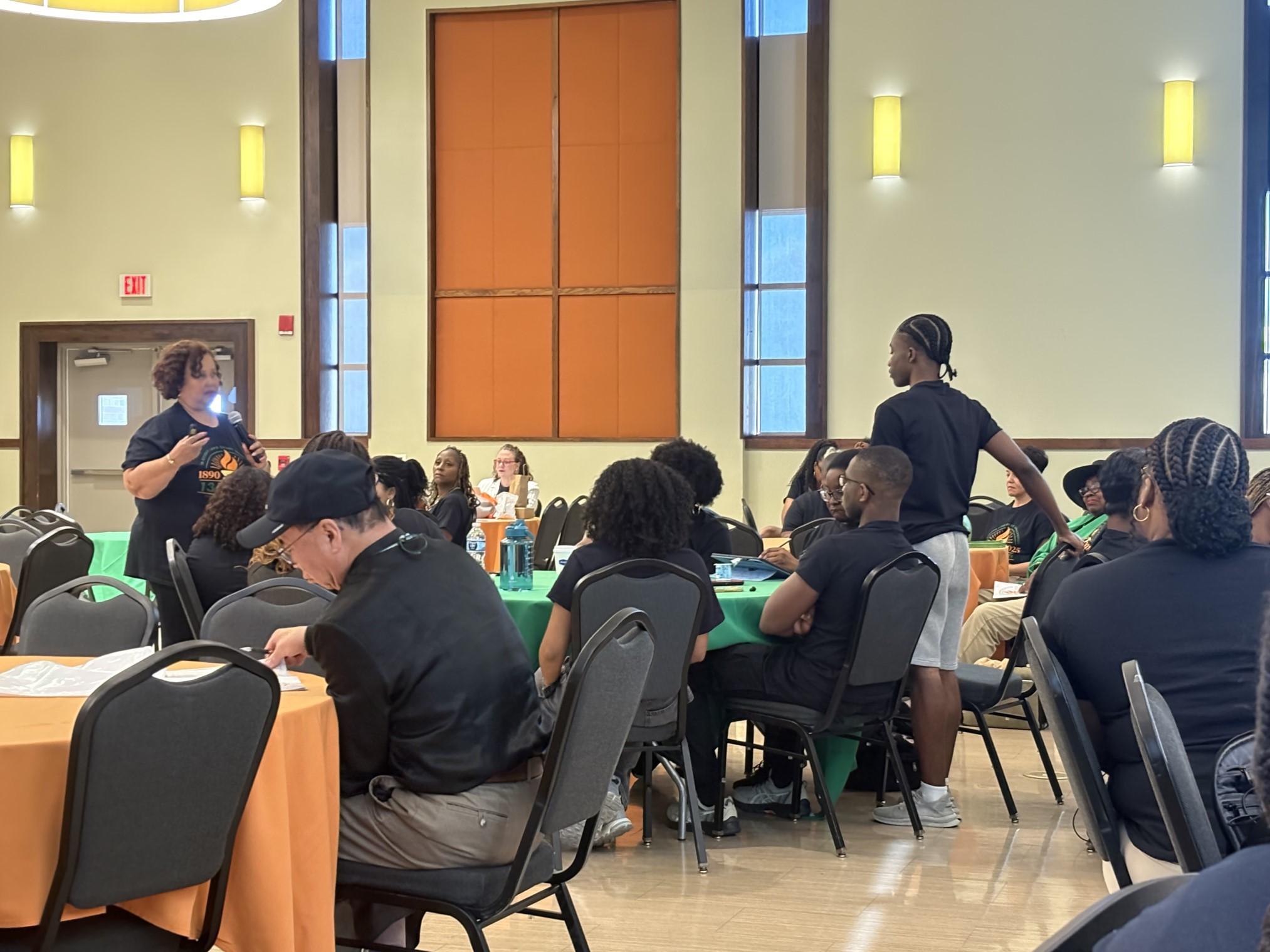

The cooperative agreement’s goal is to organize conferences that provide scholarship recipients from 1890 institutions with exposure to career opportunities in food and agricultural sciences, including positions within federal agencies and the private sector.
The SSWD Center of Excellence helps bridge the gap between education and employment by offering high-quality, relevant, and responsive learning experiences. Through academic support, career guidance, hands-on training, and strategic industry partnerships, the SSWD equips students with the skills necessary to succeed in a rapidly evolving workforce. Its mission is to ensure that learners are not only prepared for today’s careers but are also adaptable to future challenges.


The alignment between these two NIFA-supported programs is clear. By integrating the 1890 Scholarship Program’s focus on career development in food and agricultural sciences with the SSWD’s mission-driven symposium, this joint conference created a more powerful and impactful experience advancing the shared goals of both programs.
Ten dynamic sessions were dedicated to examining the various processes and pathways that lead to training and
ABOUT THE CENTER OF EXCELLENCE FOR STUDENT SUCCESS AND WORKFORCE DEVELOPMENT
The 1890 Center of Excellence for Student Success and Workforce Development (SSWD) is dedicated to encouraging and supporting young people from underrepresented minority groups to pursue studies and careers in the food, agriculture, natural resources and human (FANH) sciences and the broader STEM fields. Based at North Carolina Agricultural and Technical State University, the SSWD Center serves all 19 of the 1890 land-grant universities and is led by (consortium comprised of) representatives grant universities institutions: Florida A&M University; Fort Valley State University; Lincoln University; Tuskegee University; The University of Arkansas at Pine Bluff; The University of Maryland Eastern Shore; and Virginia State University.
To learn more about the SSWD Center of Excellence, visit: SSWD Center.
professionals can prepare for careers in the broader agricultural enterprise.
Students working during the recent student success and workforce development symposium.
UMES Global Center creates quarterly newsletter
The Center of Excellence for Global Food Security and Defense, funded by the USDA’s NIFA and housed at the University of Maryland Eastern Shore, supports a range of teaching, research, Extension and integrated initiatives aimed at building a globally competent agricultural workforce.
The Center addresses critical challenges in global food security and defense while promoting international collaboration through efforts that:
Strengthen agricultural development in developing countries.
Engage international researchers in addressing new and emerging pests and diseases affecting crops and livestock.
Engage in agricultural disaster recovery efforts.
Increase the supply of globally trained workforce in food, agriculture, natural resources, and human sciences across the 1890 land-grant universities.
Explore the Center’s latest quarterly newsletter for a mes-
Intercropping . . . From Page 1
farmers that focused on capacity building:
Dr. Rose Ogutu provided training sessions on best agricultural practices, including low-cost food preservation techniques to prevent post-harvest losses and enhance food availability.
Drs. Ogutu and Theoneste Nzaramyimana provided training on organic composting and delivering Extension services to clientele in demonstration of the USA landgrant model.
Drs. Samuel Besong and Frederick Bebe held a nutrition education workshop entitled “Food is Medicine.” Besong shared how nutrition knowledge can manage metabolic/ lifestyle diseases such as diabetes, hypertension, cardiovascular disease, COPD, cancer and other nutritionrelated diseases. Bebe emphasized the “One Health Approach” to reduce health disparities.
Additionally, a pilot research study to introduce mixed/ intercropping farming techniques was also conducted at the University of Calabar’s Teaching and Research Farm and at the Faculty of Agriculture Extension Village in Adiabo in Calabar. KSU Student, Antyana Cowan, took part in the site preparation and planting.
An approximately 0.25-acre plot of okra and cucumber mixed vegetables and a 0.5-acre plot of cassava and cowpeas mixed crop were planted at both the Teaching and Research and the Extension Village farms. While cassava growth and production data are expected in July 2025, it has already been reported that cucumbers performed very well in terms of vegetative growth and fruit production per acre compared to previous years.
Farmers who participated in the workshops have also expressed approval of the intercropping farming practices and harvest, and are willing to expand cowpea production in the region.
sage from Dr. Moses Kairo (Center director), highlights of collaborative projects from partner institutions and insights from the Center’s recent impact assessment.
Link to flipbook:
The articles included in this newsletter has been posted on the UMES website so they are searchable.
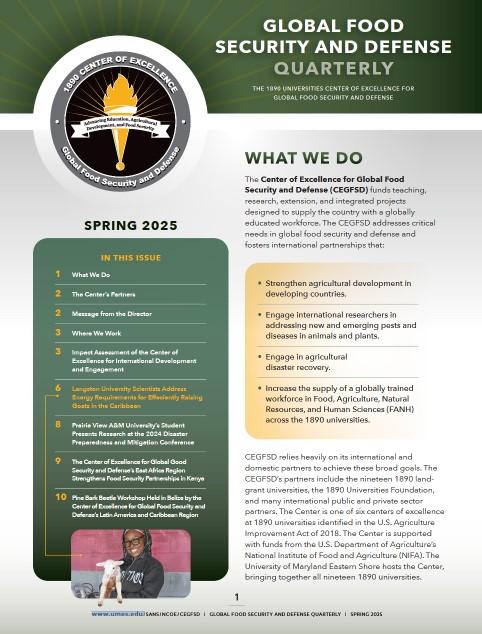
An important outcome of this pilot study was the collaborative efforts among crop and food scientists to plant and grow crops, harvest, process and package food products. The University of Calabar’s Food Science Department developed three new food products: pickled cucumber (preserved in a brine, vinegar and syrup solution), oven-dried cucumber


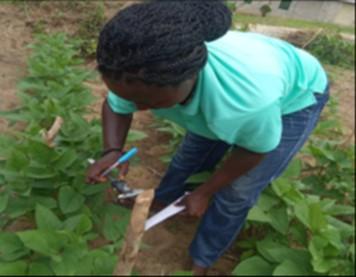
cumber stew paste with enhanced health benefits will serve as an alternative to tomato paste, while the extended shelf life of cucumber through pickling will ensure availability all year round.
This multi-institutional pilot study provided a remarkably impactful, hands-on experiential learning opportunity for both students and scientists.
Researcher evaluates plants grown with inter/mixed cropping.
Symposium . . . From Page 4
Each session underscored the breadth of rewarding career opportunities available in food, agriculture and related fields, while offering practical guidance on how to navigate and succeed in today’s job market. Designed to be engaging and interactive, the sessions featured expert perspectives, real -world advice and actionable tools to support student and early-career success. A total of 112 students from thirteen 1890 universities participated in the symposium. Session Highlights Included:
Exploring Career Pathways and Innovation with Apple, Inc. A look into how innovation drives career opportunities, with insights from a global leader in technology and its relevance to agriculture.
The Importance of Mentoring. Understanding how mentoring relationships support personal and professional growth throughout one’s career journey.
Decoded and Defined. Key tools for navigating the job market, including interpreting job descriptions, identifying the “real skills” employers seek and developing workforce-ready competencies and essential life skills.
Positioning Yourself for Workforce Success. Strategies for personal branding, goal setting and building a competitive edge in the job market.
Optimizing the Use of LinkedIn and Social Media. Leveraging digital platforms to build a professional presence, expand networks and
leadership skills rooted in service, empathy and vision to inspire positive change.
The Value of Effective Onboarding, Navigating Workplace Culture and Understanding Performance Expectations. Learning how to transition smoothly into the workforce and excel in professional environments.
Understanding the Impact of Generational Values, Communication Styles and Workplace Expectations. Exploring how intergenerational dynamics influence organizational culture, collaboration and effectiveness.
Cultivating Mental Health and Practical Tools for Managing Stress. Promoting resilience, well-being, and mental wellness as essential components of professional success.
The symposium also featured a professional track that focused on expanding experiential learning through student empowerment, enhancing student outcomes with Mentor Collective, implementing strategies to recruit, retain, mentor, and graduate first-generation students at 1890 land-grant universities, advancing workforce development in food, agriculture, natural resources, and human sciences (FANH) and equipping students for long-term success.
Finally, this symposium featured presentations celebrating the signing of the Second Morrill Act of 1890, a key moment in the history of American education. This law led to the creation of the
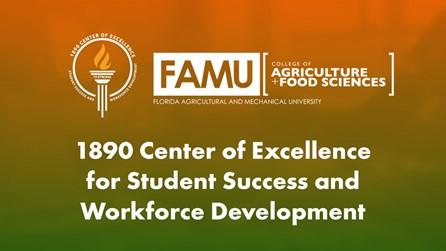


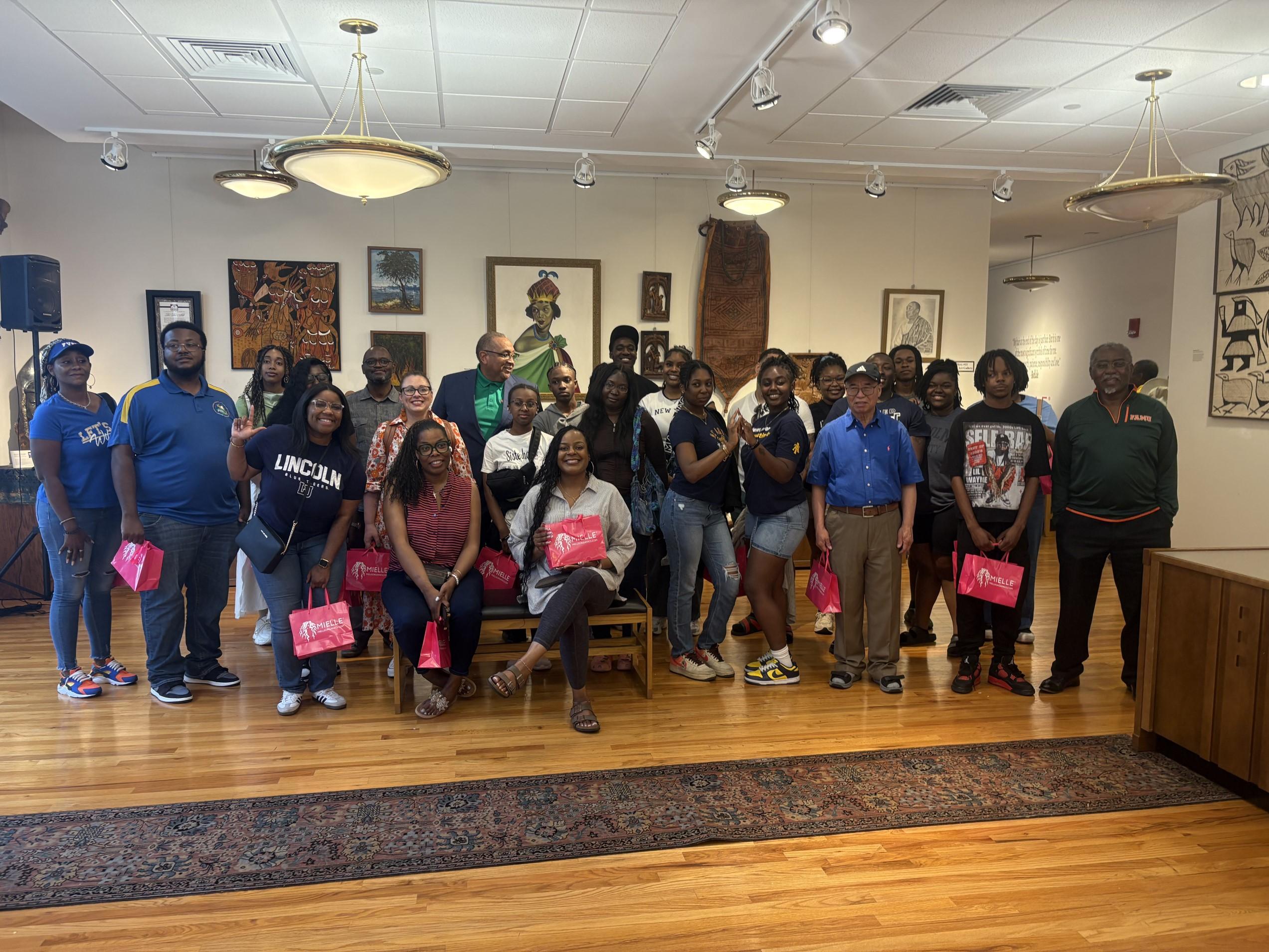
Participants from the symposium hosted by the 1890 Center of Excellence for Student Success and Workforce Development.
UMES hosts 135th anniversary events
Last month, the University of Maryland Eastern Shore (UMES) held two special events to commemorate the signing of the Second Morrill Act of 1890: a wellness walk and a virtual webinar featuring Dr. Carolyn W. Brooks, retired ARD executive director and former dean and professor emeritus of the UMES School of Agricultural and Natural Sciences.
Listed below are links to a few of the UMES 135th anniversary activities.
SANS Webinar featuring Dr. Carolyn Brooks titled “135 Years of the Second Morrill Act: Shaping Land-grant Universities and HBCUs” Article with video: Video (full speech): 1890 Wellness Walk
Whittaker . . . From Page 1


1. Assessing and strengthening collaborations between 1890 and 1862 land-grant Universities.
2. Gaining insight into how faculty members interact, communicate and collaborate.
3. Identifying successful practices and areas in need of improvement.
4. Highlighting barriers to effective collaboration to support target-ed strategies that foster stronger partnerships.
At the upcoming BAA Summer Leadership Conference (July 14–16), ARD will join leaders from the administrative heads, academic programs, agInnovation, Cooperative Extension, international agriculture programs, the communications and marketing committee and CARET for a joint meeting at the Royal Sonesta Washington, D.C., Dupont Circle This gathering will serve as a platform to align sectional priorities and explore strategic opportunities to enhance the collective impact of the Board on Agriculture Assembly (BAA).
This year's meeting will emphasize advocacy priorities related to major initiatives, including the capacity initiative and the Roadmap developed by agInnovation and Extension. Discussions will center on shaping a comprehensive strategy for FY 2027, influencing future Farm Bills and creating a long-term plan to increase federal funding in support of food, agriculture and natural resource research and Cooperative Extension.
Additionally, a new director/administrator orientation will be integrated into the conference agenda, ensuring that new leaders are well prepared to contribute effectively to the BAA’s mission and future direction.
Aug. 30 of this year marks the 135th anniversary of the Second Morrill Act of 1890, the pivotal piece of legislation that laid the foundation for establishing the 1890 land-grant universities. These institutions were created to expand access to higher education—particularly for African Americans in the postReconstruction South—and have since grown into centers of academic excellence, agricultural innovation and community advancement.
Over the past 135 years, the 1890 land-grant universities
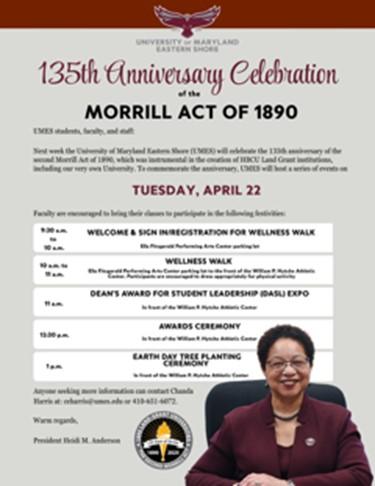

have led the way in driving transformative change. They have broadened educational opportunities, pioneered research in agriculture and STEM and ignited innovation that uplifts rural and urban communities across the nation and beyond. This anniversary is not only a time to reflect on history but a celebration of impact, resilience and vision. The legacy of the 1890 institutions lives on through generations of scholars, leaders and trailblazers proving that access to education is a powerful force for progress.
Under the theme, “135 Years Strong… Celebrating the Enduring Legacy, Growing Opportunities, Inspiring Innovation and Uplifting Communities,” we invite you to join us for a national celebration in Washington, D.C. on Sept. 9 - 10, 2025. The 1890 Universities Foundation will host several commemorative events in partnership with the 1890 Council of Presidents, Deans, and Directors Additional details will be shared soon.
Juneteenth, observed annually on June 19, commemorates the historic moment in 1865 when Major General Gordon Granger arrived in Galveston, Texas, and announced the end of slavery—more than two years after the signing of the Emancipation Proclamation. This announcement marked a turning point in American history, ushering in the Reconstruction Era and laying the groundwork for generations of progress.
Now in its fifth year as a federal holiday, Juneteenth holds deep significance for the 1890 community, which has long honored it as a time to celebrate African American freedom, history, heritage and culture. Beyond celebration, it serves as a reaffirmation of our commitment to innovative research, education, Extension and outreach that address the persistent challenges disproportionately affecting African Americans and other underresourced populations.
In today's shifting political landscape—amid ongoing efforts that threaten hard-won progress—the journey toward real socioeconomic balance remains far from complete. Yet, our resolve remains steadfast and unwavering. We continue to champion the values of justice, inclusion and opportunity for all.
Wishing you a summer filled with joy, rest and meaningful moments.

ARD OFFICERS

Wesley L. Whittaker (Chair)
Langston University
Email: wesley.whittaker@langston.edu
Gregory Goins (Chair-Elect)
Email: gdgoins@ncat.edu
Ami M. Smith (Secretary)
West Virginia State University
Email: smitham@wvstateu.edu
Jose Ulises Toledo (Treasurer)
Central State University
Email: jtoledo@centralstate.edu
Olga Bolden-Tiller (Member-at-Large)
Tuskegee University
Email: oboldentiller@tuskegee.edu
Louis Whitesides (Immediate Past Chair)
South Carolina State University
Email: lwhitesides@scsu.edu
Chandra Reddy (agInnovation Chair-elect)
Email: creddy@tnstate.edu
Non-Elected
Alton Thompson (Exec. Director)
Email: athompson1@ncat.edu
Lisa Williamson (Exec. Asst.)
Email: lmwilliamson1@ncat.edu
1890 Land Grant Universities
Alabama A&M University
Alcorn State University
Central State University
Delaware State University
Florida A&M University
Fort Valley State University
Kentucky State University
Langston University
Lincoln University
North Carolina A&T State University
Prairie View A&M University
South Carolina State University
Southern University and A&M College
Tennessee State University
Tuskegee University
University of Arkansas at Pine Bluff
University of Maryland Eastern Shore
Virginia State University
West Virginia State University

ARD Updates is published monthly by the Association of Research Directors. To suggest articles, contact Dr. Alton Thompson at athompson1@ncat.edu

JOB OPPORTUNITIES


LINCOLN UNIVERSITY, School Of Agriculture, Environmental and Human Sciences, Associate Director for Cooperative Research


SOUTHERN UNIVERSITY SYSTEM, Department of Agricultural Sciences and Technology, Assistant/Associate Professor of Agricultural Economics.
UNIVERSITY OF MARYLAND EASTERN SHORE, School of Agricultural and Natural Sciences, Department of Agriculture, Food and Resource Sciences, Associate Professor of Agricultural Economics and Associate/Assistant Professor of Agricultural Economics.
WEST VIRGINIA STATE UNIVERSITY, WVSU Research & Development Corporation, Associate Dean/ Associate Director for Research
LINCOLN UNIVERSITY OF MISSOURI, Director of Agricultural Communications. Contact the Search Committee Chair, Dr. Douglas LaVergne with questions.
PRAIRIE VIEW A&M UNIVERSITY, College of Agriculture, Food and Natural Resources, Director, Center for Sustainable Farms and Urban Agriculture.
UNIVERSITY OF MARYLAND EASTERN SHORE, School of Veterinary Medicine, Associate Dean for Research, School of Veterinary Medicine, Associate Dean for Academic and Faculty Affairs
ALCORN STATE UNIVERSITY, School of Agriculture and Applied Sciences, Alcorn State University Employment Opportunities | Chairperson, Human Development and Family Science
CALENDAR




You are invited to attend the 2025 BAA Leadership Meeting, July 14 - 16, in Washington, DC. This year's meeting will be held at The Royal Sonesta Washington, DC Dupont Circle. Attendees will discuss sectional business, provide program and partnership updates, set advocacy priorities and identify BAA strategic opportunities. The meeting will also emphasize advocacy priorities around key initiatives, including the capacity initiative and the Roadmap developed by agInnovation and Extension. Discussions will focus on drafting a comprehensive


SAVE THE DATE 2025 Joint agInnovation/CES-NEDA Meeting | Theme: "Empowering Land-Grant Universities in Navigating the Future" | Sept. 15 – 18, 2025 | Hotel: Hilton St. Louis at Ballpark MO
